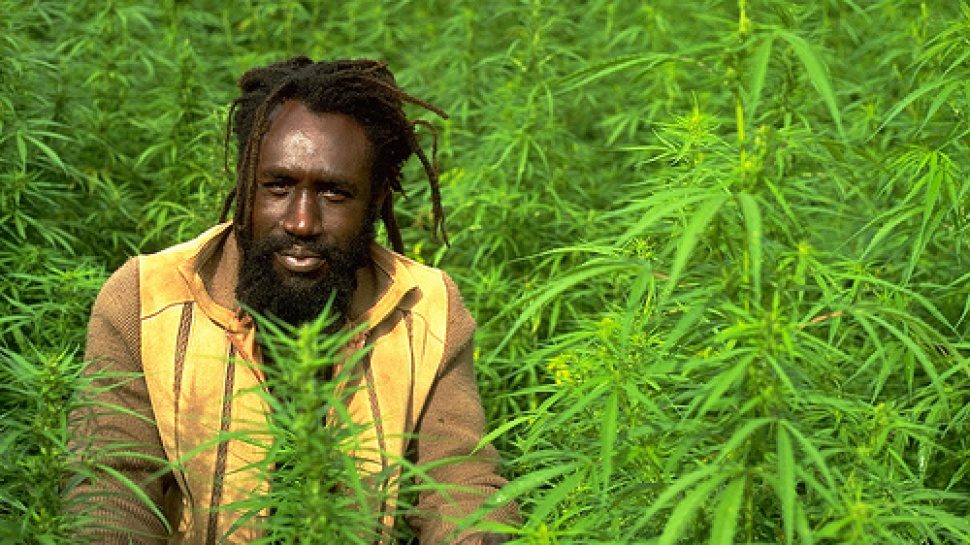(Jamaica Observer) The Ganja Growers Producers Association Jamaica (GGPAJ) says it is strongly opposed to the Government’s embrace of hemp cultivation here and has made a number of demands designed to protect the local cannabis industry from what the group sees as a threat.
The GGPAJ’s position is outlined in a letter sent to Cannabis Licensing Authority (CLA) CEO Lincoln Allen last Monday as a battle appears to be brewing between the association and its stakeholder groupings on one hand, and “some big corporate interests on the other hand”, regarding the large-scale cultivation of hemp in Jamaica.
In the letter to Allen, the GGPAJ said, while it was “totally unaware and uninformed” of the CLA’s position on the matter, it “wants to clearly and explicitly” express its “strong opposition to the Government’s apparent support for the growing of hemp in Jamaica, being indicated through the provision of Government-owned lands and other recent supportive comments”.
Added the GGPAJ: “It is our understanding (rightly or wrongly), before any new crop is introduced, and certainly on a large-scale basis, as being contemplated, there should be an environmental impact assessment study. We would also wish to evaluate the study that would obviously have been carried out and evaluated by the Ministry of Industry, Commerce, Agriculture, and Fisheries and, more likely, also by the Cannabis Licensing Authority.”
The GGPAJ — which comprises home growers who are entitled to grow five plants for their own therapeutic purposes; unlicensed traditional farmers who are in the process of transitioning to the legal industry; Rastafarians who have rights to grow sacramental herbs; and licensed ganja cultivators, as well as all other applicants to the CLA — outlined what it described as its interim position on the cultivation of hemp in Jamaica.
The Government and the CLA, the group said, must first and foremost promote and protect the interest of the cultivators and cultivation of ganja and, by extension, the regulated and traditional ganja farmers.
The association is also asking that indisputable scientific evidence be provided about the non-threat or threat to the local ganja industry.
“It is our understanding that plants grown from chemically feminised seed and clones can, and will, revert to being hermaphrodite under stress conditions. This factor creates the greatest danger, that is the real and imminent possibility of cross-pollination and the impact on the genetics and quality of high THC [Tetrahydrocannabinol] ganja plants,” the association stated.
In addition, the GGPAJ wants “lands slated to be made available for the growing of hemp to be also made available to people wishing to cultivate ganja, and that this distribution be done in a fair, equitable and transparent manner, with the GGPAJ being consulted about that process”.
Also, the association is asking that a full cost-benefit analysis be done for the cultivating of ganja and hemp.
The group said its position is based on feedback it received from islandwide consultations over the past two months, culminating with the GGPAJ All-Island Growers Consultation held at Golf View Hotel in Manchester on May 1, 2019, as well as a National Strategic Review Consultation held on February 26 at The Liguanea Club in New Kingston.
The group also said it has received numerous anti-hemp comments on its two WhatsApp platforms — ‘The Ganja Forum’ and the ‘GGPAJ’s Rasta Rights. In addition, its position is informed by notes prepared by Hawthorne Watson, chairman of GGPAJ’s Scientific Committee and former CEO of the Scientific Research Council.
The association said that it has not been included in any consultation on the matter of hemp cultivation in Jamaica. At the same time, it said that its scientific team would be prepared to present its positions and answer questions on the matter.
“We want to assist the Cannabis Licensing Authority in coming to the best decisions in the short-, medium- and long-term interests of the local cannabis industry,” the group said.
Last year June, Industry, Commerce, Agriculture and Fisheries Minister Audley Shaw said that Government was seeking to facilitate a top-tier motor vehicle company desirous of cultivating industrial hemp in Jamaica “for use as an alternative in the fabric and decoration of their vehicles”.
The possession and smoking of specified quantities of ganja, and its use for medical, therapeutic and scientific purposes were decriminalised through changes to the Dangerous Drugs Act in 2015.
Last month, Shaw told Parliament that the CLA was contemplating changes to the existing regulations in keeping with the development of the local and global medical cannabis industry. He said drafting instructions of regulations concerning import, export and transshipment are also to be completed in the near future.
Experts have estimated that the international cannabis industry will grow in value to US$150 billion in the next seven years.

